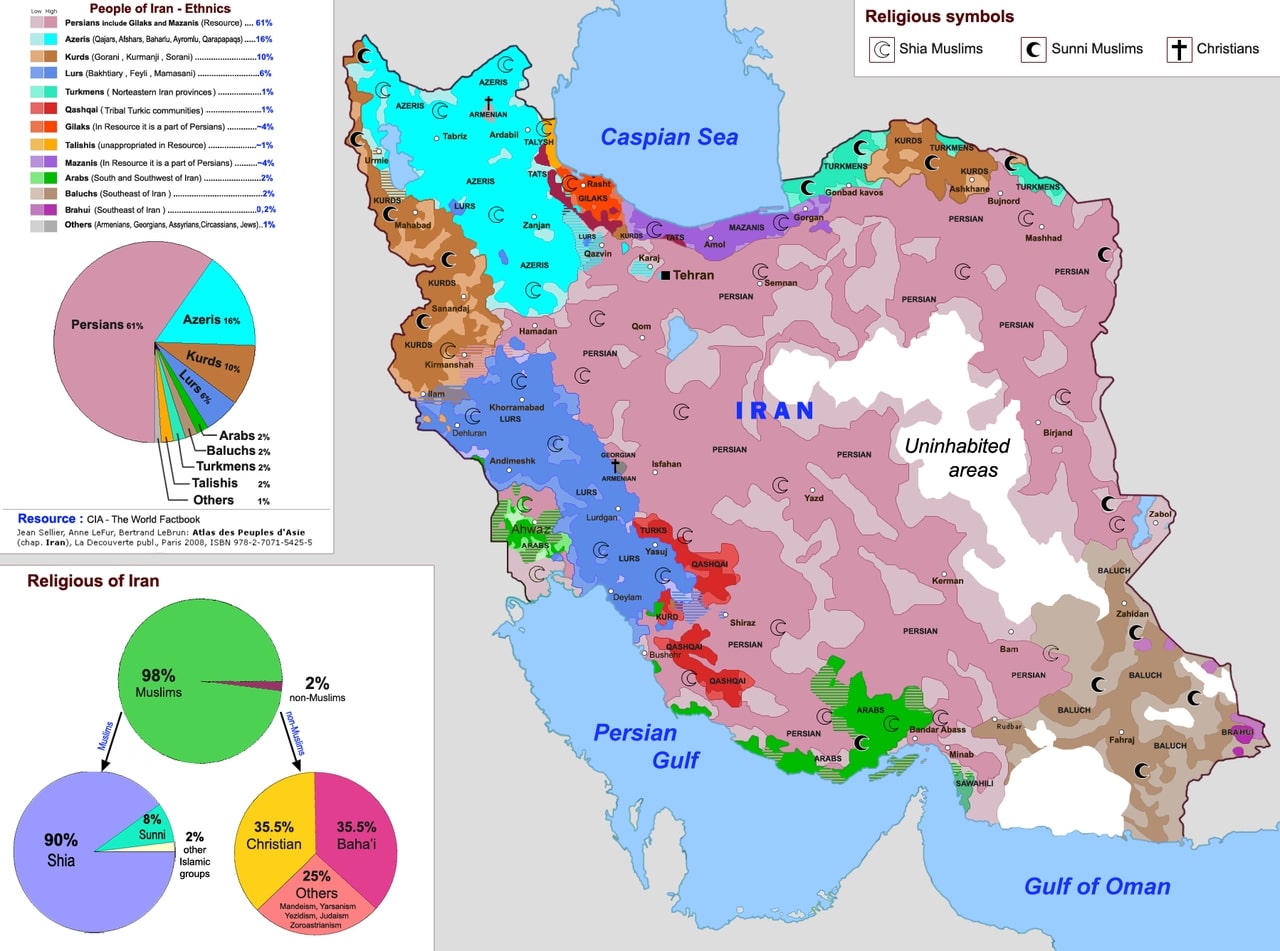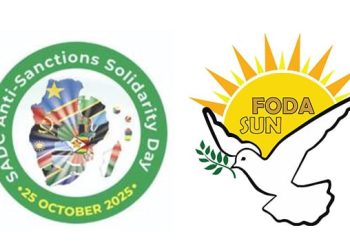1.Introduction
The international human rights law system bans any behavior that deprives the exclusive rights of minorities and ethnic groups; The Covenant of Civil and Political Rights, as one of the fundamental documents in the governance of human rights on the internal and international affairs of governments, based on its Article 27, has granted minority groups the right to benefit from their culture, to have freedom in their religion. and even use their language.[1]
The rights dedicated for ethnic minorities are to preserve their identity, unique ethnic characteristics and ancestral traditions. Granting these rights is for their attendance in the economic and political affairs of their country.[2] The most fundamental element in preserving the cultural coordinates is the mother tongue of that nation, the right to use it is mentioned in the declaration of the rights of people belonging to national, ethnic, religious, and linguistic minorities.[3]
In the Islamic Republic of Iran, there are a range of ethnic groups, including Lurs, Kurds, Balochs, Turks, Turkmens, Arabs, etc.; However, due to the extensive social relations between Iranians and deep cultural and religious commonalities, the boundaries of these ethnicities have been blurred, and perhaps the use of ethnic group instead of ethnic minority is more appropriate. At the same time, it should not be inaccurate to use minority for some groups living in Iran, such as Armenians[4], due to the uniqueness of their beliefs and cultural characteristics. In this report, the right to use the mother tongue of ethnic groups in the Islamic Republic of Iran is examined.
- The approach of the legal system of the Islamic Republic of Iran
Principle 19 of the Constitution of the Islamic Republic of Iran negates any discrimination between people regardless of ethnicity, color, race, and language. Therefore, the difference in the language of different ethnic groups in Iran will not lead to superiority and privilege.
Conformably to principle 15 of the Constitution of the Islamic Republic of Iran, “the official and common language and script of the people of Iran is Farsi.” Documents, correspondence, official texts, and textbooks must be in this language and script, but the use of local and ethnic languages in the press and mass media and the teaching of their literature in schools is free, along with the Persian language.
By interpreting this principle, it can be understood that the official language and script in the Islamic Republic of Iran for managing administrative affairs and writing official texts is Farsi, but the use of ethnic and local languages in mass media and their teaching is legitimate, and this is by human rights rules in The match is perfect.[5]
In other laws, the importance of ethnic languages is also significant:
- Article 2 of the statutes of the Academy of Persian Language and Literature refers to the use of ethnic languages to enrich the Persian language;[6]
- The importance of ethnic languages in introducing the historical identity of Iran is mentioned in Article 109 of the Law of the Fourth Plan of Economic, Social and Cultural Development, approved in 2004;
- In the Legislative decree of the 644th meeting of the Supreme Council of the Cultural Revolution on 5 – 6 – 2009, The council authorized the ministries of Science and Health of Iran to offer two language and literature course units related to native and local languages and dialects of the country such as Azeri, Kurdish, Balochi, and Turkmen in central universities of the relevant provinces on an optional basis be taught.[7]
with the decision of the Council for the Development of Higher Education was approved at different time divides in 2003, to teach Azeri Turkish language and literature and Kurdish language and literature at the bachelor’s degree level.[8] It is worth mentioning that the Parliament of the Islamic Republic of Iran presented a draft in 2019 for teaching local and ethnic languages in schools and universities.
In Article 101 of the Charter of Iranian Citizenship Rights, the right of Iranian citizens to learn and teach their local language and dialect is mentioned.
- The objective situation in Iran
In most universities of the Islamic Republic of Iran, Arabic language and literature are taught as an academic course.[9] In comparison, Kurdish language and literature are taught only at Sanandaj University, Turkish-Azeri language and literature are taught only at Tabriz University, and Armenian language and literature are taught only at Isfahan University.
Although the teaching of the mother tongue along with the Persian language in the schools of the ethnic areas has been neglected, at the same time, usually in the mentioned areas, the Persian language and other subjects are taught in the mother tongue of the students by their teachers; For example, in Azeri-speaking areas of Iran, Persian literature teachers teach this lesson in Azeri language.
In aspects of culture and media, Iran’s situation in this case is evaluated favorably. For example, the Islamic Republic of Iran Broadcasting has several channels in which local and ethnic languages are spoken; in the networks of Kurdistan, Mahabad, Zagros, and Ilam, the Kurdish language is spoken next to Persian, in the networks of West Azerbaijan, Eshraq, Sahand, and Sablan, Azeri is spoken next to Persian, and also in the network of Aflak, Lori language is spoken next to Persian. It is notably, the Sahar 3 network, as one of the overseas broadcasting networks of the Islamic Republic of Iran, produces programs exclusively in the Kurdish language.
Artists belonging to any ethnic group in Iran are also free to sing in their ethnic languages, and in the country, we see numerous concerts and performances in local and ethnic languages such as Kurdish and Azeri.[10] Also, the publication of poems and letters in local and ethnic languages in the country is done without special prohibition.
[1] Nicola Wenzel, ‘Group Rights’ (January 2011) in: Professor Anne Peters and Professor Rüdiger Wolfrum (eds), Max Planck Encyclopedia of Public International Law (online edn), para.2
[2] Seyyed Mohammad Hashemi, Human Rights and Basic Freedoms, (Mizan, Tehran 2021), p. 592 (In Persian)
[3] Declaration on the Rights of Persons Belonging to National or Ethnic, Religious and Linguistic Minorities, UNGA Res 47/135 (18 December 1992)
[4] Armenians are among religious and ethnic minorities living in Iran.
[5] In the principle 16 of the Constitution of the Islamic Republic of Iran, the teaching of the Arabic language is compulsory up to the secondary level, but the reason for this is the fact that the religious texts of Islam are Arabic as the official religion of the country.
[6] Available at: https://rc.majlis.ir/fa/law/print_version/100069, Last visit at February 14, 2024 (In Persian)
[7] Expert opinion on: “Implementation Plan of Article 15 of the Constitution of the Islamic Republic of Iran.”, Available at https://rc.majlis.ir/fa/report/show/1248422, Last visit at February 14, 2024 (In Persian)
[8] Ibid
[9] See: Selection booklet for the 1402 national entrance exam for the literature and humanities branch, Available at https://dl.heyvagroup.com/admin/Files/upload/770320278CS.Ensani1.pdf, Last visit at February 14, 2024 (In Persian)
[10]For some event and performance archives, see: https://www.iranconcert.com/ (In Persian)





